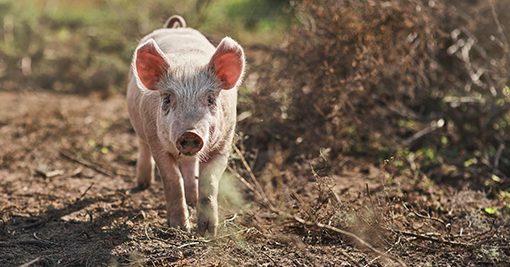Trade sources in China say some farms in the central province of Sichuan are still battling severe outbreaks of African swine fever (ASF) and have been since March, with animals culled while the region battles to contain the outbreak.

The province is a major hog production base in China; the outbreak is suspected of spreading since early March this year, when a hog farm in Sichuan found ASF cases among its herd leaving 38 pigs dead and another 38 sick animals out of the 127 hogs in the herd, industry sources told AgriCensus Thursday.
“It is said the ASF epidemic is getting worse, and some farms are conducting clean-up procedures,” one source said.
Nanbu county in Sichuan closed its pork production trading markets and business operation sites for 48 hours from June 29 – an attempt to prevent the spread of pathogenic microorganisms, such as ASF, according to a notification from the county’s official WeChat account
Import worries
Any surge in cases is likely to worry investors and traders, with assumptions around China’s need to import huge volumes of soybeans, wheat, barley and corn in the months ahead to meet recovering animal feed demand all key in underpinning recent strength in the agriculture complex.
Sichuan Provincial Department of Agriculture and Rural Affairs recently introduced measures to stabilize the hog population and pork prices across the region, according to an official document released Wednesday.
“We should immediately improve the management system for the prevention and control of ASF, and implement the daily reporting system for the investigation of ASF and other major animal epidemics… We will launch a special campaign of sterilization in summer,” the document said.
A domestic concern
But analysts expect any fallout from the Sichuan ASF epidemic to be limited to the domestic market, at least for now.
“According to our fieldwork in Sichuan and Guizhou province, the ASF situation is getting more severe in June, especially in some private farms,” Xiong Kuan, a senior analyst from the Cofco Group, said in a monthly futures strategy meeting. “But in general, we think it is still limited in some local area, and ASF has not been the main factor to impact the general market yet.”
Recovery and resurgence
The world’s largest pig producer and consumer suffered severely from the ASF outbreak that raged through the country’s herds between 2018 and 2019, slashing the pig population by about a third.
The rapid recovery of China’s pig industry has been the main driver of global demand in animal feed for corn and soybean; however, ASF is still a considerable problem – six cases have been reported since January 2021 in different areas in China.
Any resurgence in the disease is likely to worry neighboring countries such as Vietnam where multiple pig herds succumbed to the disease; outbreaks could led to significant slowdowns in import demand while North and South America are looking to harvest large volumes of crops.
This article, by Cai Chen, was first published to agricensus.com on July 8.




